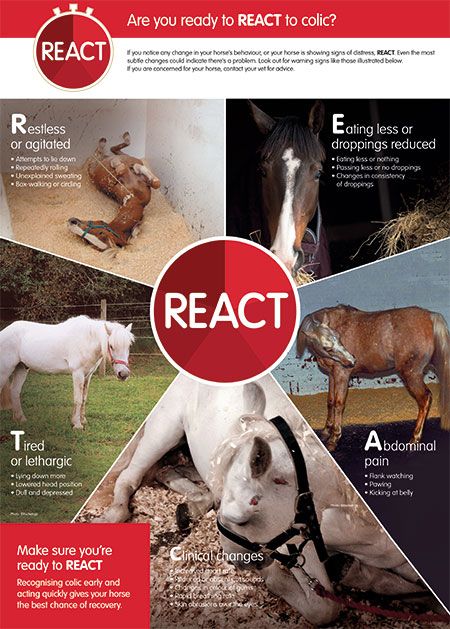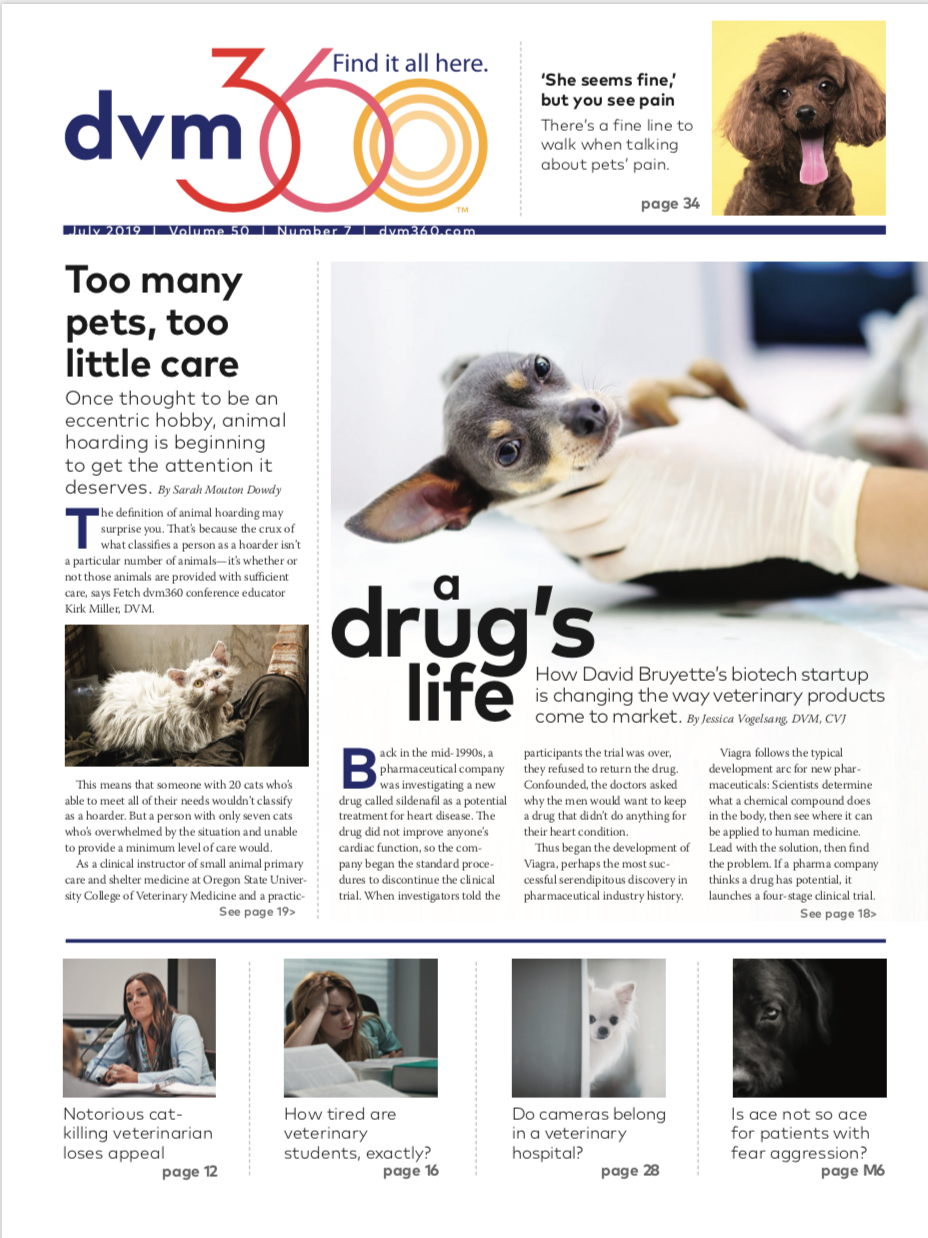When to R.E.A.C.T.: Signs of colic in horses
A British-developed acronym you can use to educate your equine clients on signs of colic in a horse. Education like this could lead a better-informed, faster-responding and quicker-calling clientele.
A better-educated clientele is crucial to quicker diagnoses and treatment, a mission shown off by the British Horse Society's work on colic. (Yakov / stock.adobe.com)

Not all horses with colic present telltale signs of the disease (pawing the ground, kicking at the belly and rolling) but more subtle signs that can often be attributed to another issue. Colic can be more complicated than veterinary clients think, according to Sarah Freeman, BVetMed, PhD, DECVS, FHEA, FRCVS, who presented a session to veterinarians on better colic education for horse owners at the West Indies Veterinary Conference hosted by Ross University School of Veterinary Medicine last year. Dr. Freeman did her work in collaboration with the British Horse Society and a group she leads-the Nottingham Equine Colic Project.
This evidence-based equine health initiative helps horse owners recognize colic in their horses earlier, so they can contact their veterinarians sooner. According to the British Horse Society's website, one in 10 colic cases may be critical and up to 80 percent of these critical cases can result in death or euthanasia.
REACT is an acronym-centered marketing effort to reduce the instance of critical cases by highlighting the early signs of the disease. Videos, handouts and educational material shares jargon-free language on colic signs like this:
Restless or agitated
- Attempts to lie down
- Repeatedly rolling
- Unexplained sweating
- Box-walking or circling
Eating less or droppings reduced
- Eating less or nothing
- Passing less or no droppings
- Changes in the consistency of droppings
Abdominal pain
- Flank watching
- Pawing
- Kicking at belly
Clinical changes
- Increased heart rate
- Reduced or absent gut sounds
- Changes in the color of gums
- Rapid breathing rate
- Skin abrasions over eyes
Tired or lethargic
- Lying down more
- Lowered head position
- Dull and depressed
Dig deeper into the British Horse Society's website on the topic, and you'll find:
- "REACT Now to Beat Colic," a free video for horse owners
- "REACT to Colic," a longer version of the video
- More than a dozen PDF handouts related to colic, including "Recognizing the signs of colic," "Emergency decision making" and "Waiting for the vet to arrive." Below is a sample of the first page of one of the handouts.
With these resources literally at horse owners' fingertips, the chances of them catching colic sooner and coming to you for solutions is better than ever.
(Courtesy of British Horse Society)

